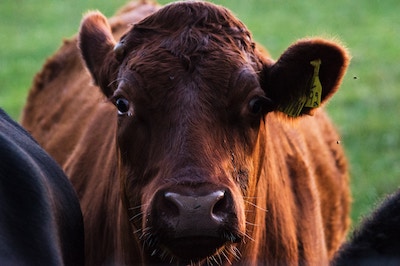
CFIA cancels licenses of three Ontario meat packers
By Glacier Farm Media Network
Business Operations Exporting & Importing Food Safety Processing Regulation Meat &Poultry safe food for canadians
Citing “false or misleading information” given them during an E. coli probe, food safety officials have now permanently pulled the federal slaughter, processing and export licenses for Toronto’s Ryding-Regency Meat Packers and related companies.
The cancellation, announced Monday Dec. 1, indefinitely prolongs what was already described as “critical processing capacity shortage” for the province’s cattle producers, leaving them to seek other markets and feed cattle far longer than anticipated.
However, during its investigation, CFIA said Monday, it also “identified (it) had received false or misleading information from the licence holders concerning E. coli lab results.”
Effective immediately, CFIA said, the companies in question “are no longer able to slaughter food animals or prepare meat products for export or to be sent from one province or territory to another.”
In a statement posted in September on its website following the license suspensions, Ryding-Regency had said it “continue(s) to co-operate with the CFIA to ensure that all requirements are being met, and that improvements are being implemented to strengthen our daily business practices.”
Through the investigation, the company said on its site, it “concluded, that on isolated production days, we experienced breakdowns in our operating procedures,” and announced voluntary product recalls from those days as a result.
Ryding-Regency said at the time it “did not knowingly release any contaminated products, and there have been no complaints from industry.”
‘Uncertainty and duress’
CFIA’s announcement comes in the wake of what the Ontario Federation of Agriculture had described separately Thursday as “a state of uncertainty and duress” for the province’s cattle producers that has so far lasted “more than a year.”
Losses on beef cattle operations in Ontario and Quebec combined have risen above $150 million since January 2019, a situation OFA said Thursday is “not sustainable.”
The OFA said the resulting “critical processing capacity shortage — combined with a serious competitiveness crisis — is costing the sector millions of dollars in lost income, threatening the viability of Ontario beef farms, livestock truckers, auction barns, processors and other associated industries that make this billion-dollar sector thrive.”
Processing backlogs, OFA said Thursday, “are becoming more frequent and severe, requiring farmers to feed cattle at increased costs for longer periods, resulting in producers being penalized for overweight animals when they finally secure processing space.”
With beef farmers having “no immediate recourse to address these challenges,” OFA and other groups on Thursday called for “immediate government action to aid in the resolution of the mounting threats facing Ontario farmers.”
BFO and Les Producteurs de bovins du Quebec in September called on governments to set up a national emergency beef cattle investment and assistance program to help farmers in Ontario and Quebec “mitigate market losses and the disturbances of recent trade and market disruptions,” OFA noted.
Longer-term, OFA said, “a plan to support the expansion of processing capacity to service Ontario and Eastern Canada is needed. Too many processors have exited the sector in recent years, leaving too few processors to place bids on cattle to ensure a competitive, healthy marketplace.” — Glacier FarmMedia Network
Print this page